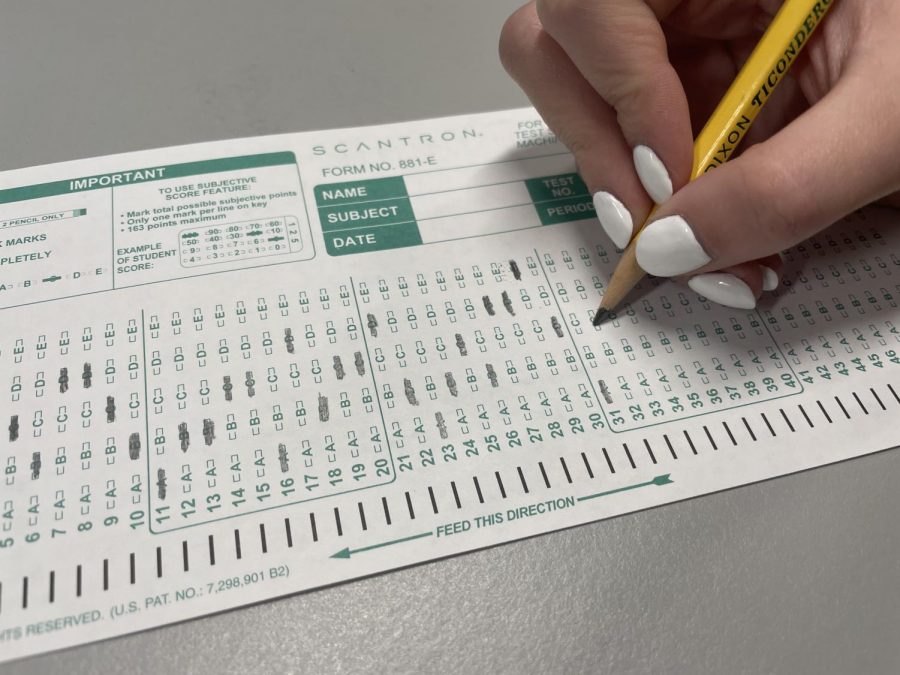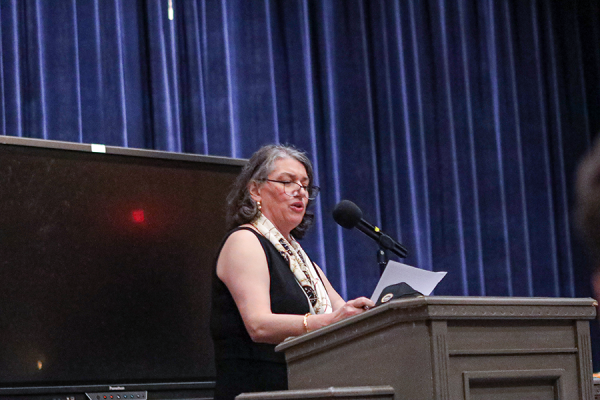ACPS Implements New County-Wide Grading Policy
Credit: Darrah Sheehan
ACPS designed the grading policy as a means to promote county-wide equity.
November 3, 2021
Albemarle County Public Schools began implementing a new grading policy for the 2021-2022 school year with an overall goal of promoting equity county-wide.
New principal Jennifer Sublette says this change has been in the works for some time. “Dating back to 2019, as a division, across the school system, we began to look at research around grading and looking at some of the problems. There was a survey to all faculty and it showed that grading policies were wildly varied across schools and even within schools,” she said.
As a result of the varied grading strategies within schools, Sublette said, the new grading policy “talks about the need and priority that grades accurately communicate what students know, understand, and are able to do.”
While the goal of the new grading system “sounds philosophically correct,” Sublette said, “we are in the middle of figuring out what the systems and structures [are that] we need to have in place. [This is] to make sure kids have a lot of different opportunities to demonstrate what they have learned.”
The actual implementation of the new grading policy prevents extra credit, practice, and homework from counting towards a student’s grade; eliminates “zeros” from the grade book and replaces them with a 50%; and removes behavior from grades.
Sublette acknowledges that the major change affecting students at WAHS is the elimination of homework, or practice, from grades.
“The points we got for completing homework helped — they created a sort of buffer,” she said. However, there is a reason behind removing homework from grading. “Homework is practice, you do practice in order to help you do the essay, the project, the presentation, or the test,” said Sublette.
The new grading policy removes factors such as homework, extra credit, and late penalties. These factors, in Sublette’s words, “muddied the ability of a grade to actually communicate what kids have learned. A kid should be able to have what we call productive struggle while they are learning something” without worrying about it impacting their grade, she said.
Sublette acknowledges that the county is in the early stages of implementing this policy. “There are a lot of ways in which grades can become more meaningful and more accurate. I think one of the challenges is that we are in that first stage and it’s a stressful time already… This is a big shift for kids, teachers, and families. I think some of the anxiety around it stems from needing to understand exactly the why behind it,” she said.
While Sublette does not anticipate any major changes to the policy in the remainder of the year, she said, “I think the intent of the grading policy is noble. It is up to us as a school to make sure that we are figuring out ways to help support kids in demonstrating their learning.”















